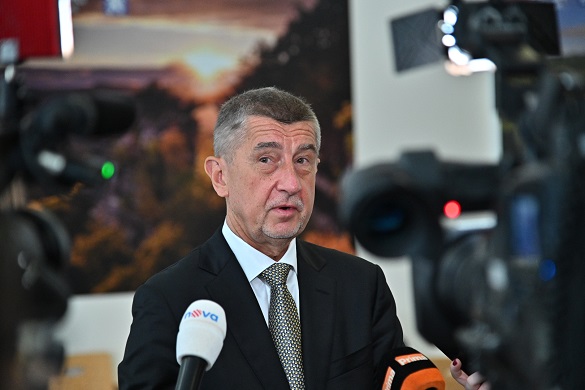Czech PM faces conflict of interest over Agrofert: EU
Published : 01 Jun 2019, 00:41
Updated : 02 Jun 2019, 01:26
Preliminary audit result of the European Commission (EC) shows that Czech Prime Minister Andrej Babis faces a conflict of interest over links to his former firms in the Agrofert group, local media reported on Friday.
Brussels demands that all European Union (EU) subsidies Agrofert received since February 2017 be returned, Czech business paper Hospodarske noviny (HN) writes on its website.
The Czech Finance Ministry confirmed it had received an English version of the EC audit on Babis's suspected conflict of interest, but the report was supposed to be confidential at current stage.
"The audit report draft has 71 pages. It includes a disclaimer at the beginning, saying those are just preliminary findings, conclusions and recommendations of EC auditors that may be changed based on further information from national bodies. This is why the draft should be considered confidential till the process is confirmed and final findings issued," Finance Ministry spokesman Michal Zurovec was quoted as saying by the Czech News Agency (CTK).
Reacting to the reports, Babis said he was violating neither Czech nor European laws and the Czech Republic would not have to return any EU subsidies.
Babis owned the Agrofert giant, which has more than 250 firms operating in the chemical, food, farming, forestry, technology, transport, renewable sources (biofuels) and media fields until 2017, when he transferred it to trust funds to comply with the Czech conflict of interest law.
Transparency International warned of Babis's conflict of interest last year, saying Babis may still influence Agrofert and is its beneficiary, which goes counter to the EU conflict of interest directive. Moreover, as the head of government, he has an influence on the talks about the EU budget and the distribution of EU subsidies in the Czech Republic.
Last December, the European Parliament passed a resolution calling on the EC to look into the case of Babis's possible conflict of interest.
The audit was completed before the European elections, but the Czech Republic only received it this week, according to the website Neovlivni.cz.


